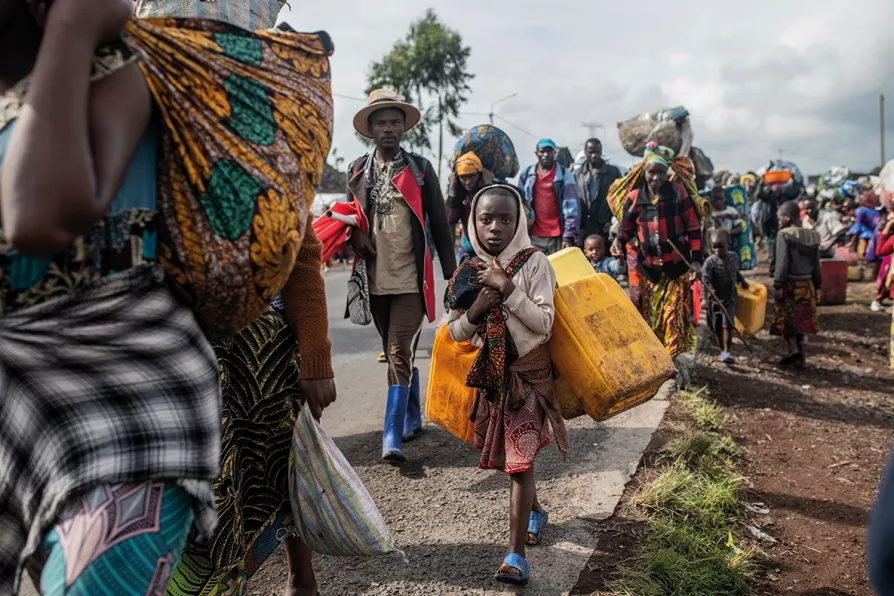The Carpathia isn’t coming to rescue this government still swimming in the mire, writes LINDA PENTZ GUNTER
The waters are running red in Africa’s Great Lakes region
A war is raging that we can’t ignore any longer, writes VIJAY PRASHAD

 DESPERATE: People fleeing the fighting between government forces and M-23 rebels make their way towards Goma, Democratic Republic of Congo
DESPERATE: People fleeing the fighting between government forces and M-23 rebels make their way towards Goma, Democratic Republic of Congo
IN EARLY November, foreign ministers from the Democratic Republic of the Congo, Christophe Lutundula Apala Pen’Apala, and Rwanda, Vincent Biruta, met in Luanda, Angola, to find a political solution to a conflict that has been ongoing in eastern DRC for decades.
The foreign ministers agreed that the “peace roadmap” agreed to in a July meeting had to be implemented.
Angola’s President Joao Lourenco shuttled between Rwanda’s President Paul Kagame and the DRC’s President Felix Antoine Tshisekedi in his role as the African Union’s “mediator in the crisis” between Rwanda and the DRC.
Similar stories

By honestly telling Ukraine that it will not become a Nato member, Trump and Hegseth have opened the door to a possible end to the conflict but have also altered the political dynamic on both sides of the Atlantic, write MEDEA BENJAMIN and NICOLAS JS DAVIES












